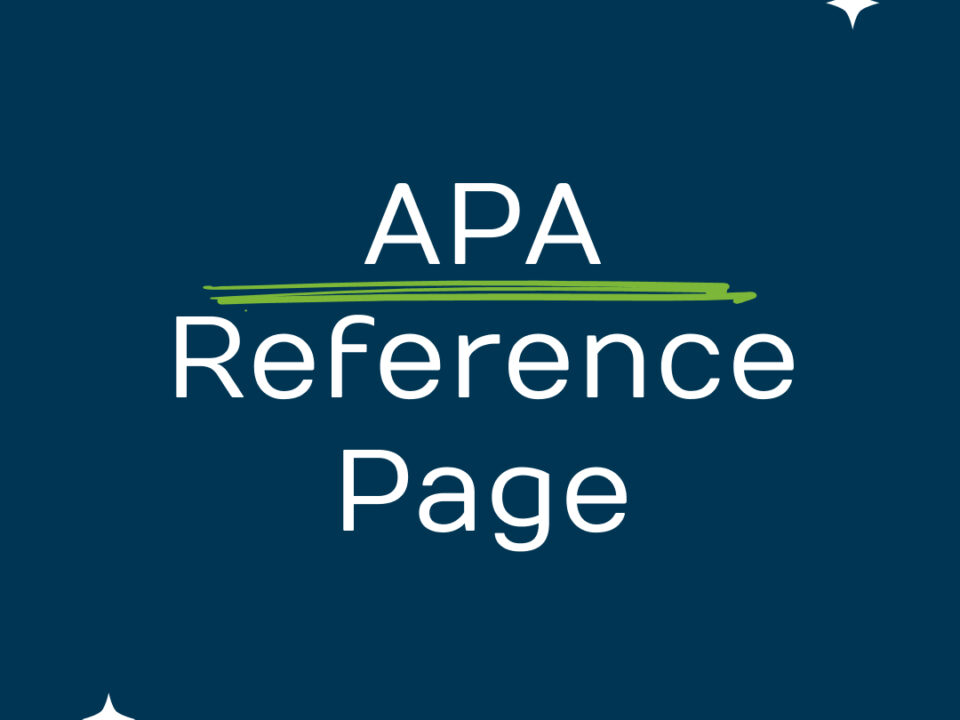
What is plagiarism?
June 19, 2020
How can ISI paper improve CV?
June 19, 2020Last updated on December 24th, 2024 at 07:25 pm
Co-authoring and its importance in research and academia
Co-authorship has become a vital practice in the realm of research and academia when numerous individuals cooperate and contribute together to create a scholarly work. This notion is highly significant since it consolidates various skills, experience, and viewpoints, leading to more complete and rigorous research findings. Through the collaborative distribution of tasks and obligations, co-authors can access and leverage one another’s expertise and experiences, augmenting the research’s caliber and comprehensiveness. Furthermore, the act of co-authorship cultivates a climate of cooperation and nurtures cross-disciplinary discourse, empowering researchers to address intricate problems from several perspectives.
Co-Author Participation services
Moreover, engaging in co-authorship is crucial in building credibility and gaining recognition within the academic world. By engaging in collaborative research and jointly publishing their findings, researchers can successfully display their aptitude for teamwork and their knowledge in various aspects of the research process. This not only amplifies their prominence but also fortifies the overall influence of their discoveries. Research articles that are co-authored tend to garner increased attention and are more prone to being cited, therefore enhancing the academic standing of the authors and advancing their career opportunities.
Furthermore, co-authorship facilitates the spread of knowledge and expedites the sharing of research discoveries. Collaborative endeavors facilitate academics in leveraging each other’s networks and gaining access to a broader audience, consequently enhancing the reach and influence of their work. By exchanging ideas, pooling resources, and sharing data, academics can more efficiently address intricate difficulties and generate meticulous and pertinent research. Furthermore, collaborating with others on a project promotes the sharing of diverse ideas and helps the exchange of effective methods, which in turn promotes intellectual development and pushes the boundaries of knowledge.
Co-authoring is crucial in research and academia as it enables the utilization of collective intelligence and facilitates the production of influential scholarly work. Through engaging in collaboration with other researchers, individuals can access and utilize their collective knowledge, expertise, and viewpoints, thus improving the caliber and influence of their study. Furthermore, engaging in co-authorship offers an opportunity for acknowledgment and prominence within the academic sphere, facilitating the spread of knowledge and expediting the sharing of research discoveries. Hence, cultivating a culture that promotes collaborative authorship can greatly enhance knowledge progress and improve society.
How working with authors from diverse fields can make a work more complete and well-rounded?
Undoubtedly, the collaboration with co-authors from varied backgrounds and experience enhances the quality and depth of any piece of work. During the process of co-authoring, each participant contributes their distinct expertise and viewpoint, resulting in a more comprehensive and balanced end result. The efficacy of collaboration stems from the fusion of diverse ideas, experiences, and expertise, ultimately augmenting the worth and credibility of the task at hand. The varied backgrounds and expertise of co-authors contribute to a wider range of perspectives and a more comprehensive understanding of the subject matter.
An important benefit of cooperating with co-authors from diverse backgrounds is the chance to acquire a comprehensive perspective on the subject matter. Each person contributes a unique combination of knowledge and skills, encompassing various academic fields, cultural viewpoints, and professional areas of expertise. This variety of perspectives promotes analytical reasoning and stimulates a thorough examination of concepts and debates. By engaging in productive talks and maintaining a polite approach, co-authors have the opportunity to question each other’s viewpoints and expand the limits of what can be accomplished in their collaborative work.
Moreover, the amalgamation of diverse backgrounds and specialized knowledge facilitates a more nuanced comprehension of the topic at hand. Co-authors can contribute their specialized expertise and abilities to the project, guaranteeing a comprehensive analysis of each area. For example, a co-author who has a scientific background can offer technical expertise, while another co-author with a humanistic background can bring in social perspectives. This joint endeavor not only enriches the thoroughness of analysis but also guarantees that the work maintains its accessibility and relevance to diverse audiences.
Ultimately, working together with co-authors who have diverse backgrounds and distinct areas of expertise results in a more thorough and holistic piece of work. The partnership not only expands the range of viewpoints but also facilitates the examination of intricate matters from several perspectives. Through the consolidation of their varied abilities, co-authors can provide a unified and comprehensive result that appeals to a wider audience. The significance of collaboration cannot be underestimated, as it facilitates inclusiveness, nurtures analytical reasoning, and ultimately enhances the caliber and influence of the work.
Increased Productivity: Expediting the Research Process
The practice of co-authoring has gained significant traction in academic research due to its multitude of advantages, such as increased efficiency and accelerated progress in the research endeavor. Through the process of working with other experts in the subject, researchers are able to combine their knowledge and skills, leading to a study that is more thorough and insightful. Co-authoring facilitates job allocation, enabling scholars to concurrently address different areas of the project. This not only expedites the research process but also enables a more effective distribution of resources, ultimately resulting in enhanced production.
Moreover, engaging in co-authorship cultivates a synergistic and inventive atmosphere that promotes the interchange of concepts and perspectives. Throughout the process of writing and revising, co-authors have the ability to offer essential criticism and suggestions to improve the overall quality of the research. This collaboration enhances both the precision and dependability of the findings, while also fostering critical thinking and intellectual development. By engaging in co-authorship, researchers can access the many viewpoints and specialized knowledge of their colleagues, resulting in a more comprehensive and multifaceted study.
Collaborative authorship also enhances research outcomes by augmenting the likelihood of publication and dissemination. Collaborative research projects are more likely to be accepted by peer-reviewed journals due to their tendency to exhibit more rigor and academic significance. Furthermore, engaging in co-authorship enables researchers to establish connections with a broader community of experts, which may result in increased prospects for collaborative projects and future research undertakings. Co-authoring significantly boosts productivity and expedites research progress by distributing the burden, broadening the scope of expertise, and maximizing opportunities for publication.
In general, collaborating with others on a project provides numerous advantages that improve efficiency and accelerate the research procedure. Collaboration and task allocation enhance researchers’ productivity and effectiveness, resulting in expedited research progress. Furthermore, engaging in co-authorship cultivates a synergistic and inventive atmosphere, facilitating the interchange of concepts and enhancing the caliber of the research. Furthermore, it enhances the probability of publishing and distribution, facilitating the connection of researchers with a wider community of experts. By engaging in co-authorship, scholars can leverage the potential of collaboration to enhance their academic endeavors, resulting in increased productivity and achievement.
Strengthened Validity: Improving Research Accuracy
The practice of co-authoring has gained significant popularity in academic research due to its multitude of advantages, such as increased efficiency and acceleration of the research process. Through the process of working with other specialists in the same subject, researchers are able to combine their knowledge and skills, leading to a study that is more thorough and insightful. Co-authoring facilitates job allocation, enabling scholars to concurrently address different areas of the project. This not only expedites the research process but also enables a more effective distribution of resources, ultimately resulting in enhanced production.
Moreover, engaging in co-authorship cultivates a synergistic and inventive atmosphere that stimulates the interchange of concepts and perspectives. Throughout the process of writing and revising, co-authors have the ability to offer essential criticism and suggestions to improve the overall quality of the research. This collaboration enhances both the precision and dependability of the findings, while also fostering critical thinking and intellectual development. By engaging in co-authorship, researchers can leverage the many viewpoints and specialized knowledge of their colleagues, resulting in a more comprehensive and multifaceted study.
Collaborative authorship also enhances research outcomes by augmenting the likelihood of publication and dissemination. Collaborative research projects are more likely to be accepted by peer-reviewed journals due to their tendency to exhibit more rigor and academic significance. Furthermore, engaging in co-authorship enables researchers to establish connections with a broader community of experts, which may result in increased prospects for collaborative projects and future research undertakings. Co-authoring significantly boosts productivity and expedites research progress by distributing the burden, broadening the scope of expertise, and maximizing opportunities for publication.
In general, collaborating with others as co-authors provides numerous advantages that improve efficiency and accelerate the research process. By collaborating and dividing duties, researchers can enhance their efficiency and effectiveness, resulting in a faster pace of study. Furthermore, engaging in co-authorship cultivates a synergistic and inventive atmosphere, facilitating the interchange of ideas and enhancing the caliber of the research. Furthermore, it enhances the probability of publishing and distribution, facilitating the connection of researchers with a wider community of experts. By engaging in co-authorship, academics can leverage the potential of collaboration to enhance their academic endeavors and attain higher levels of productivity and achievement.
Co-authorship is a crucial element of academic research that significantly enhances the credibility and precision of the research process. When scholars collaborate on a study, they contribute a wide range of viewpoints, specialized knowledge, and personal backgrounds. This collaborative endeavor improves the research’s quality by assuring the inclusion of diverse perspectives and the identification and resolution of any biases or constraints. Researchers can enhance the overall validity of their research by participating in co-authoring, which involves validating their findings through critical discussions and thorough peer review.
In addition, co-authoring cultivates a collaborative atmosphere in which researchers collaboratively strive towards a shared objective – generating precise and dependable research. By employing efficient communication and collaboration, co-authors are able to distribute the workload, carry out extensive literature research, and evaluate data in a more comprehensive manner. By implementing this efficient procedure, researchers may minimize mistakes and detect possible inconsistencies in the results, hence enhancing the precision of the research findings. In addition, collaborating with other authors allows researchers to combine their resources and tap into a wider array of expertise, resulting in a stronger research design and methodology.
Moreover, engaging in co-authorship plays a vital role in fostering accountability within the study process. When multiple authors cooperate on a research publication, each co-author assumes responsibility for their own contributions. This collective obligation guarantees that all facet of the research, ranging from data gathering to analysis, undergoes meticulous examination and assessment by numerous personnel. Accountability serves to improve the precision of the study and guarantees ethical behavior and adherence to research standards and guidelines. The robustness of this collaborative endeavor guarantees that any potential inaccuracies or prejudices are effectively minimized, thereby enhancing the general integrity and soundness of the research.
Paper co-authoring Mentorship Opportunities: Guiding Junior Researchers
Co-authoring plays a crucial role in academia by improving research findings and promoting scholarly activity. Engaging in collaboration with peers and mentors not only provides junior researchers with useful experience but also empowers them to make meaningful contributions to the academic community. Junior researchers enhance their knowledge and abilities by participating in co-authorship, which exposes them to a wide range of perspectives and approaches. This mentorship opportunity cultivates a cooperative environment that encourages development and supports emerging scholars to become future pioneers in their respective domains.
Co-authoring offers the advantage of utilizing the knowledge and mentorship of seasoned scholars. Junior researchers can enhance their knowledge and skills by collaborating closely with mentors. This collaboration allows them to benefit from the mentors’ expertise, leverage their professional connections, and get valuable insights into the research methodology. This direction guarantees the high quality and meticulousness of their work, placing students on a trajectory towards academic superiority. Furthermore, participating in co-authorship provides junior researchers with the opportunity to collaborate with other research teams, exposing them to a range of study themes and approaches. This experience expands their knowledge and enhances their research skills.
Collaborating with others on a project also offers junior researchers an opportunity to build their reputation and expertise in their area of study. Junior researchers enhance their visibility and expand the reach of their work by partnering with distinguished professors. Such exposure can potentially result in fresh prospects for collaboration, funding, and professional progression. Collaborating with others on research also allows less experienced researchers to establish their body of published work, which is essential for advancing in the academic field. Junior researchers can develop a strong basis for their future academic pursuits by engaging in high-caliber research initiatives and publishing their work in esteemed academic journals.
Ultimately, the mentorship opportunities offered through co-authoring are of great worth in molding the professional paths of novice researchers. Through collaboration with seasoned researchers, junior researchers acquire access to mentorship, varied viewpoints, and broadened professional connections. The presence of a collaborative culture not only improves the caliber of research but also enables junior researchers to achieve exceptional results in their specific areas of expertise. Co-authoring books enhances their professional development and achievements by increasing their visibility and credibility.
We will provide you with articles compatible with your field, so that you can choose a suitable article and a position as a co-author. You will participate in conducting and completing the study as well.
For further information, please get in touch with us.
WhatsApp: +4581901285
Email for connect to us for Co-Author Participation services:


